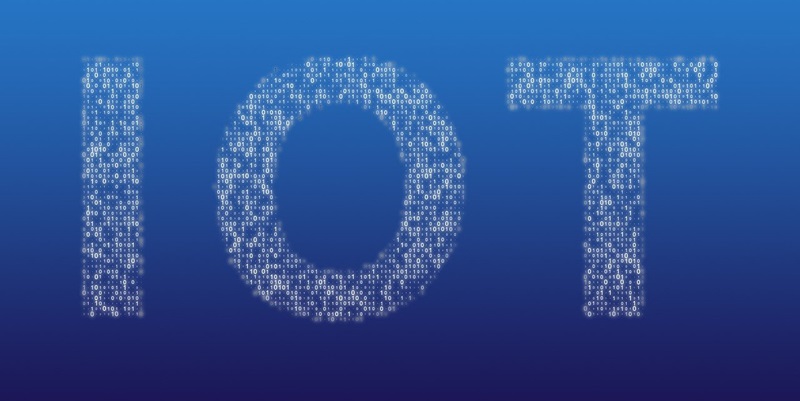The convergence of Artificial Intelligence (AI) and the Internet of Things (IoT) is fundamentally transforming modern business practices by enhancing efficiency and fostering innovation across various industries. This integration is primarily driven by AI’s capacity to analyze extensive datasets collected by IoT devices, subsequently utilizing algorithmic intelligence to enable predictive maintenance, anticipate equipment failures, and schedule proactive maintenance activities. This results in minimized downtime and significant cost savings. The effective amalgamation of AI and IoT offers businesses numerous opportunities to streamline processes, reduce operational expenses, and ultimately improve productivity across sectors such as manufacturing, retail, and finance.
AI’s contribution extends to demand forecasting, where it leverages historical sales data and market trends to optimize inventory management, thereby preventing stockouts and enhancing operational efficiency. Furthermore, AI-powered automation and robotics handle repetitive tasks, boosting productivity and allowing human employees to focus on strategic initiatives. Natural Language Processing (NLP) further augments business operations by enabling machines to comprehend and respond to human language, revolutionizing customer service with chatbots and virtual assistants. This integration ensures that businesses can efficiently handle customer inquiries around the clock, enhancing customer satisfaction and loyalty.
Transformative Impact on Business Operations
In the financial services sector, AI integration has birthed advanced fraud detection systems that analyze transactions in real-time, identifying fraudulent activities with higher accuracy, protecting customer data, and mitigating financial losses. IoT devices are indispensable for real-time data collection, with smart devices and sensors monitoring critical parameters like temperature, energy consumption, and inventory levels across different industries. These smart sensors enhance machine performance insights and predictive maintenance, leading to optimized production processes and decreased operational disruption. This results in significant cost savings and improved operational efficiency, which are critical for maintaining a competitive edge.
The retail sector benefits immensely from the incorporation of IoT devices that monitor inventory levels with smart shelves, automatically triggering restocking orders to ensure product availability at all times. This reduces the risk of stockouts, ensuring that customers have access to the products they need, when they need them. AI’s analytical capabilities complement these efforts by predicting future inventory requirements based on historical sales data and market trends. The seamless integration of AI and IoT in inventory management not only boosts operational efficiency but also enhances the overall customer experience, encouraging repeat business and increasing revenues.
Enhancing Predictive Capabilities and Customer Service
AI and IoT integration emphasizes data-driven automation that provides businesses with a competitive edge by optimizing resource use and improving operations. The harmonious blend of AI-driven insights and IoT real-time data collection enables companies to streamline processes, reduce operational costs, and enhance productivity. One of the key advantages of this synergy is the ability to predict and address issues before they escalate into costly problems, as predictive analytics help businesses foresee equipment failures, schedule timely maintenance, and avoid unexpected downtime. This proactive approach ensures that business operations run smoothly, with minimal interruptions affecting productivity.
Natural Language Processing (NLP) helps revolutionize customer service by allowing machines to understand and respond to human language. Chatbots and virtual assistants can handle numerous customer inquiries simultaneously, providing timely and accurate responses that improve the customer experience. Moreover, these AI-driven tools can learn from each interaction, continuously refining their responses and enhancing the quality of service. The combination of AI and IoT in customer service not only increases efficiency but also frees human employees to focus on more complex and strategic tasks, further driving innovation within the organization.
Future Prospects and Business Optimization
The synergy between Artificial Intelligence (AI) and the Internet of Things (IoT) is revolutionizing business operations by boosting efficiency and sparking innovation across numerous sectors. This collaboration relies heavily on AI’s ability to dissect vast datasets collected by IoT devices. By employing intelligent algorithms, AI can predict maintenance needs, foresee equipment malfunctions, and organize proactive repairs. This leads to reduced downtime and substantial cost reductions. For businesses, the successful integration of AI and IoT translates into streamlined processes, lower operational costs, and improved productivity, especially in industries like manufacturing, retail, and finance.
AI also aids in demand forecasting by analyzing historical sales data and market trends to fine-tune inventory management, thereby avoiding stockouts and enhancing operational efficiency. Moreover, AI-driven automation and robotics can handle monotonous tasks, increasing productivity and allowing employees to focus on more strategic activities. Natural Language Processing (NLP) enhances business functions by enabling machines to understand and react to human language, transforming customer service with chatbots and virtual assistants. This ensures efficient 24/7 handling of customer inquiries, boosting both customer satisfaction and loyalty.

